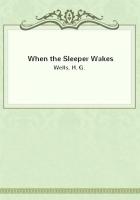Libr. 4, Plantarum.
Blest be the man (and blest he is) whom e'er (Placed far out of the roads of hope or fear)
A little field and little garden feeds;
The field gives all that frugal nature needs, The wealthy garden liberally bestows All she can ask, when she luxurious grows.
The specious inconveniences, that wait Upon a life of business and of state, He sees (nor does the sight disturb his rest)
By fools desired, by wicked men possessed.
Thus, thus (and this deserved great Virgil's praise)
The old Corycian yeoman passed his days, Thus his wise life Abdolonymus spent:
The ambassadors which the great emperor sent To offer him a crown, with wonder found The reverend gardener hoeing of his ground;
Unwillingly and slow, and discontent, From his loved cottage to a throne he went.
And oft he stopped in his triumphant way, And oft looked back, and oft was heard to say, Not without sighs, "Alas! I there forsake A happier kingdom than I go to take."
Thus Aglaus (a man unknown to men, But the gods knew, and therefore loved him then)
Thus lived obscurely then without a name, Aglaus, now consigned to eternal fame.
For Gyges, the rich king, wicked and great, Presumed at wise Apollo's Delphic seat, Presumed to ask, "O thou, the whole world's eye, Seest thou a man that happier is than I?"
The god, who scorned to flatter man, replied, "Aglaus happier is." But Gyges cried, In a proud rage, "Who can that Aglaus be?
We have heard as yet of no such king as he."
And true it was, through the whole earth around No king of such a name was to be found.
"Is some old hero of that name alive, Who his high race does from the gods derive?
Is it some mighty general that has done Wonders in fight, and god-like honours won?
Is it some man of endless wealth?" said he;
"None, none of these: who can this Aglaus be?"
After long search, and vain inquiries passed, In an obscure Arcadian vale at last (The Arcadian life has always shady been)
Near Sopho's town (which he but once had seen)
This Aglaus, who monarchs' envy drew, Whose happiness the gods stood witness to, This mighty Aglaus was labouring found, With his own hands, in his own little ground.
So, gracious God (if it may lawful be, Among those foolish gods to mention Thee), So let me act, on such a private stage, The last dull scenes of my declining age;
After long toils and voyages in vain, This quiet port let my tossed vessel gain;
Of heavenly rest this earnest to me lend, Let my life sleep, and learn to love her end.















